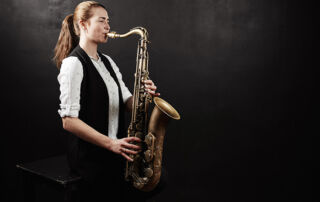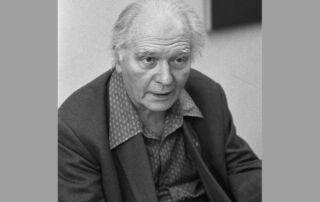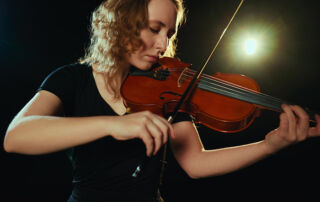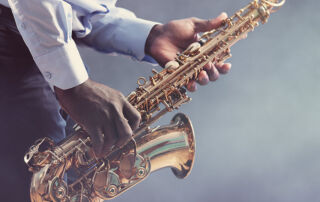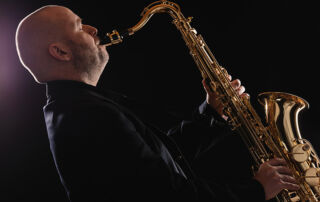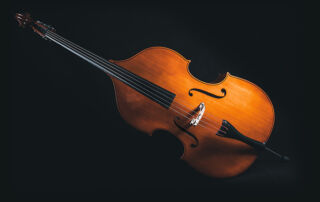The job of concert performer, which I do occasionally in addition to my job as an orchestral musician and teacher, appeals to me enormously.
Preparing a solo or duo recital, or works accompanied by an orchestra, takes several months.
I'd like to share with you a concert project for viola da gamba and harpsichord that will be exactly the same as when I play a cello and piano duo.
Phase 1
This project begins with the choice of the programme to be presented at the performance.
This is followed by deciphering, choice of tempo and then daily work.
I particularly like this stage because it's always the foundation of a great project and it's very important if you want to feel confident on stage in front of an audience.
I like to try and express different emotions when I play, and I tell myself I've succeeded when people sometimes leave the concert with tears in their eyes.
Phase 2
In the second phase, once the programme has been worked out, I practise sequencing the pieces in the order of the concert to deal with the different characters and tonalities of each one, so as to test my stamina.
These first two stages represent several hours of daily work.
I then make an appointment with my playing partner to work together and share our wishes about the interpretation of the works.
We meet several times before the day of the performance.
Phase 3
The next step is to choose your concert outfit, which is very important.
Given the two instruments I play (the cello and the viola da gamba, which are instruments that have to be placed on the calves), I have to opt for a loose-fitting outfit that doesn't slide around so that I can hold my instrument properly, either trousers or a wide skirt or dress, which isn't necessarily an easy thing to find when you're looking in the 'eveningwear' section.
Phase 4
The two weeks before the big day, the programme is perfected and all I do is maintain it, play it and make a few minor adjustments.
It's a time when I take more time to do sport and relaxation and breathing exercises to feel even more relaxed and at ease with my body and mind.
Phase 5
D-Day is tomorrow!
I prepare my scores and my music stand, which I choose to be particularly light and foldable so that I can set it up low enough not to be hidden behind it. I also like to take my own lightweight folding stool with me for transport because it's perfectly adapted to my size.
I iron my skirt or dress and put it away with my shoes, which will also be chosen according to the instrument, because to play the viola da gamba I prefer, as many do, shoes with low heels so that the viola sits more comfortably on my calves.
Phase 6
This is it!
Rehearsal from 4pm to 6pm in the concert hall.
Concert 8.30 pm
I still have to find the best position on the stage so that the acoustics are as pleasant for the listener as they are for me, because in some halls you only have to move a few metres for the viola da gamba to sound even better.
The lighting technician positions the lights so that the audience can see me clearly and so that I can also read my scores with ease.
I'm taking the time to get used to the acoustics as I go through my programme and work out the little details.
The rehearsal is over.
I get ready and focus in my dressing room.
It's 8.30 p.m. and the audience is all settled in, waiting for me to take to the stage.
As I walk in, I'm very happy, despite the stage fright, to finally be able to offer these weeks of work and I take the applause in my stride.
Sometimes I hear the reactions of the people present at the end of a play, and that tells me that the audience is enjoying the evening.
At the end of the last song, I hear "BRAVO" and the audience clamour for an encore, which is particularly pleasing.
Naturally, I had prepared a piece of art as an encore.
The concert ended with a final bow and I returned to my dressing room.
Now it's time to decompress. I feel fulfilled because I can see that my daily work has been very useful and I have succeeded in this wonderful concert project.
I got changed and left my dressing room to meet some of the spectators who had been patient enough to wait for me outside the concert hall to talk about the performance, which was another great moment.
I'm a bit tired but excited about the evening. I'm now on my way home, stopping for a drink with my playing partner. We share our feelings and emotions.
Once I'm home, it's obviously impossible, as it always is, to put on my nightwear and fall asleep straight away. This happens after every concert, whether as a soloist, chamber musician or orchestral musician. It's normal for all musicians to be unable to fall asleep after a concert. You have to give the adrenalin time to subside.
In conclusion
This part of my life is not the only one, but it's very important because I've been playing music since I was very young and I couldn't do without it because it's essential to my personal well-being, it's my job and I'm fully aware of how lucky I am to be able to do a job I'm passionate about.
On the other hand, I have a family with a young child. The disadvantage of this wonderful job is that I'm often away, especially in the evenings and at weekends.
I wouldn't say that the daily work is a disadvantage because I really enjoy being alone with my instrument to practise.
Now you understand that being a musician isn't just about getting up on stage and playing your instrument.
The most important thing to bear in mind is the amount of time spent working upstream.
A lot of people don't necessarily understand that we have to practise on holidays or even on Christmas Day.
In a later text, I'll tell you about my life as an orchestral musician.

